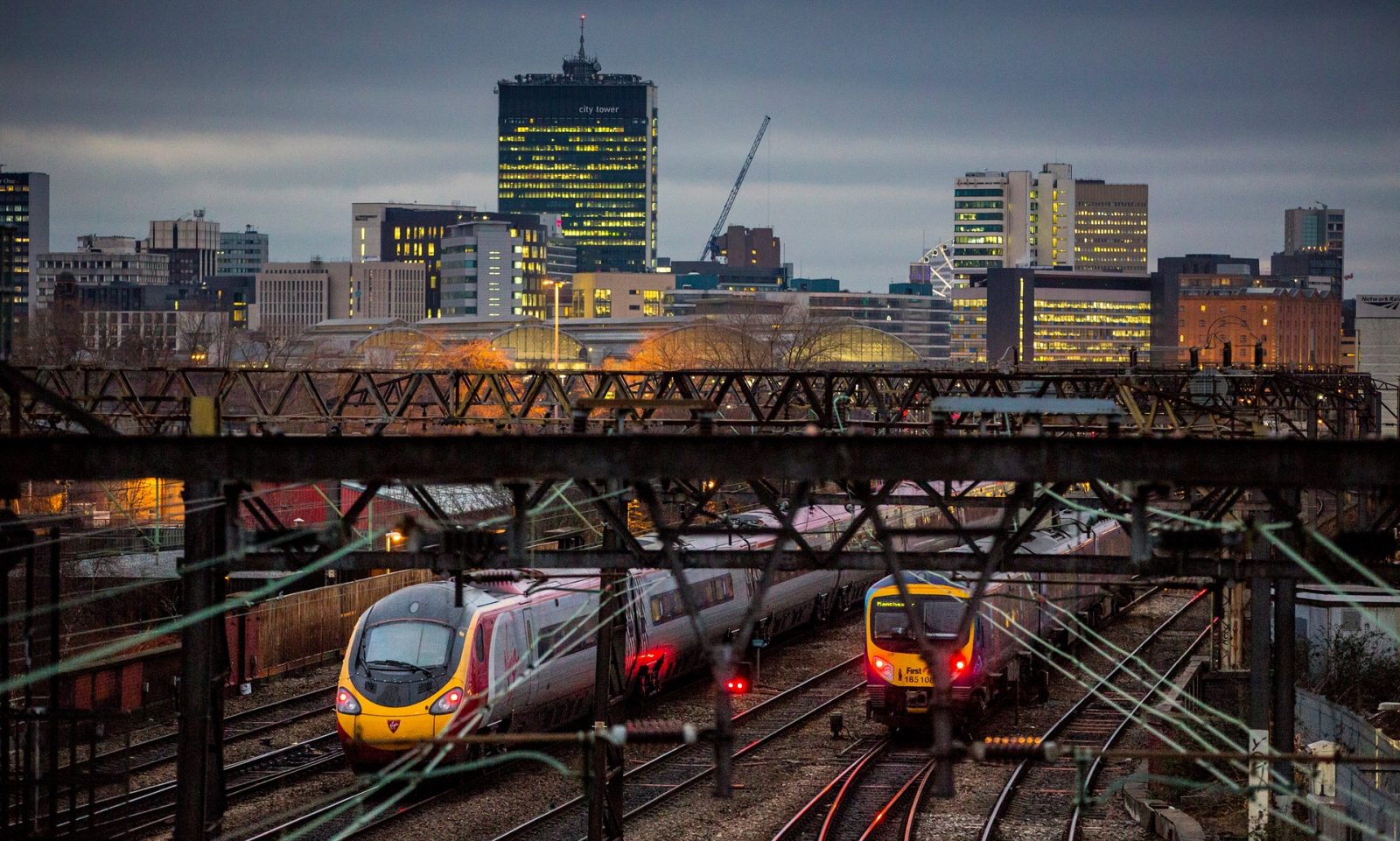The Labour conference has formally committed itself to the renationalisation of the English rail network as it pledged to oppose another round of “unneeded, unwanted and ill-thought-through privatisation”.
In a significant boost for the party leader, Jeremy Corbyn, who has suffered a series of setbacks over the EU and Trident, Labour’s national executive committee agreed a statement that paves the way for the rolling renationalisation of the rail network.
“Conference opposes another round of unneeded, unwanted and ill-thought-through privatisation,” it said. “We believe there is a better way.”
Manuel Cortes, the general secretary of the Transport Salaried Staffs’ Association (TSSA), welcomed the move.
Opening the debate on the NEC statement in a speech from the Labour conference platform, Cortes said: “I’m absolutely delighted that after years and years of campaigning the Labour party has finally seen sense and that we are telling the British people that there is clear red water between us and the Tories when it comes to our railways. We will be running our railways in the interests of passengers and taxpayers.”
The Corbyn camp was delighted with the move, hours before the new Labour leader addressed the conference in Brighton. It showed that Corbyn, who has been forced to clarify his thinking on the EU since his election and who lost a battle to hold a vote on whether Britain should retain Britain’s Trident nuclear deterrent, has been able to deliver one of his main pledges made during the Labour leadership contest.
Corbyn’s camp hailed the move. A leadership source said: “Rail has been a symbol of Labour not quite getting it right for years and not cutting through. [Today is] therefore a symbol of a clearer, more popular approach under Jeremy.
“This morning we’ve seen big progressive shifts in rail and housing policy, demonstrating that as the week wears on Labour’s conference is delivering on a new agenda.”
The NEC statement says Labour will set up a rail taskforce that will seek to find a mechanism to:
eturn private rail franchises into public ownership when they come to an end. Break clauses would also be introduced to accelerate the process when it is in the interests of passengers and taxpayers. On this timetable, a third of the rail franchises could be brought into public hands by 2025 if Corbyn wins the 2020 general election. Up to five of the 16 franchises are due to expire between 2020 and 2025.
• Create a “new dynamic public operator” to reinvest profits by private rail operators into cutting fares and rail infrastructure.
• Oppose any attempt to break up or privatise Network Rail.
Corbyn believes that his plans for a rolling renationalisation of the railways, which enjoys strong support in opinion polls, is one of his most significant policies.
He believes that it shows policies that are dismissed as leftwing – such as nationalisation – can be hugely popular among mainstream voters.
In a policy document unveiled during his leadership campaign, Corbyn said: “The privatisation of the railways fragmented our rail network meaning the most expensive and confusing ticketing structures in Europe. Our rail network suffers from massive underinvestment, recently cut again by this government, while larcenous levels of profiteering continue.
“We need to rebuild an integrated publicly owned railway network that is run by the people for the people. It is important for our economy, society and the environment that our railways are run in the public interest not for private profit. Under my leadership Labour will commit to public ownership, run by passengers, workers and government.”
But Cortes, whose union hosted the Corbyn leadership campaign, saw the move to renationalise the railways as part of a wider political development. He told the Labour conference: “Yesterday we had a magnificent new shadow chancellor telling us that we are the anti-austerity party. Well, today when you vote for this statement we are also the anti-neoliberal party because privatisation, deregulation, they all come from the same neoliberal tool box that gave us financial deregulation and brought our economy to the edge of the abyss. No more I say.”
As debates about the future direction of Labour policy under its new leader continued to dominate the conference, Lucy Powell, the shadow education secretary, insisted her views on free schools could be married with the broad brush of policies put forward by Corbyn during his campaign.
Powell, said a Labour government would bring academies and free schools under greater local authority oversight, including over school place planning and failing standards, but she admitted the party would take time to think through the degree of oversight.
Speaking on BBC Radio 4’s Today programme before Corbyn’s speech to conference, Powell said Labour would not return free schools to local authority control, but would allow local government to intervene where necessary.
Speaking to the Guardian during the leadership campaign, Corbyn said: “I am not a supporter of the principle of free schools and academies, and I would want to bring them all back into the local authority orbit.”
The new shadow energy secretary, Lisa Nandy, announced that a Labour government would not seek to renationalise energy companies: “Jeremy [Corbyn] and I don’t want to nationalise energy. We want to do something far more radical. We want to democratise it.”
Corbyn set out proposals to “socialise” Britain’s energy supply in a policy document during the leadership campaign – encouraging energy supplies owned by local authorities, communities and small businesses – but he also expressed a desire to see the public ownership of the National Grid.
Nandy said: “There should be nothing to stop every community in this country owning its own clean energy power station. Across the country schools are already taking the initiative and going solar. Generating power and heat for their own use.
“With the right support, community-based energy companies and cooperatives could be a new powerhouse, and a path to a more secure energy future. Labour in local government is already leading the way, effectively bypassing the big six entirely.”
In the first week after Labour elected its new leader, the shadow work and pensions secretary, Owen Smith, and the shadow equalities minister, Kate Green, denied it was party policy to oppose the benefits cap, contradicting comments Corbyn had made hours earlier.








